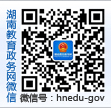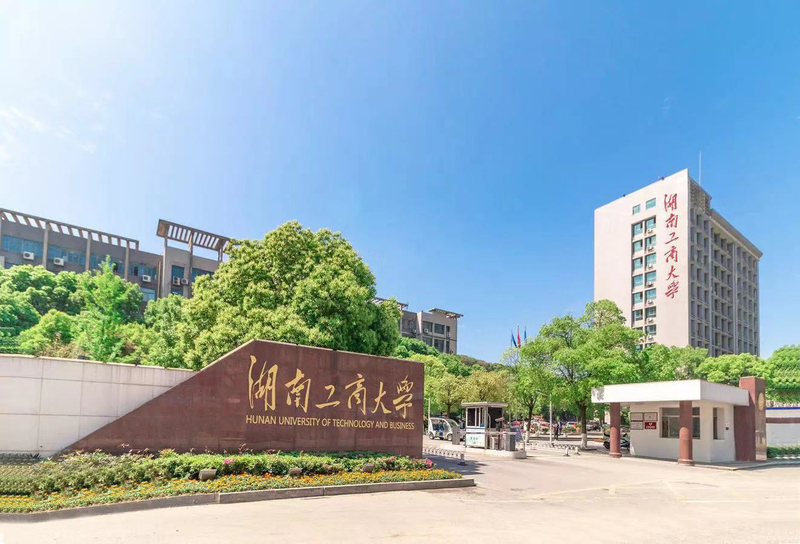CAE Academician and Professor Chen Xiaohong Serves as Honorary Chairperson and Delivers Keynote Speech at CSWIM 2023
2023-06-27
On the morning of June 24, the China Summer Workshop on Information Management 2023 (CSWIM 2023) opened in Changsha. The theme of this year's conference is "Information Systems for Sustainable Digital Futures." Chen Xiaohong, CAE Academician, Director of Xiangjiang Laboratory, and Secretary of CPC HUTB Committee, served as the Honorary Chairperson of the conference organizing committee. The conference includes 3 keynote speeches, 59 thematic presentations across 20 sub-forums, and 61 posters on 31 display boards. Over 620 experts and young scholars in the field of information systems attended the conference, with a total of 220 submissions.
Academician Chen Xiaohong and Professor Zhang Han, Chairman of CSWIM, delivered the opening remarks. Academician Chen Xiaohong extended warm congratulations on the conference's opening in her speech. She also reviewed the development of research in the field of information systems in China, urging researchers in this area to align their work with the nation's major strategic needs and conduct groundbreaking research.
Following the opening ceremony, Academician Chen Xiaohong delivered a keynote speech titled "Innovation and Application Practices in Resource and Environmental Management Research in the Digital Economy Era." The speech covered three main aspects: major issues in resource and environmental management in the digital economy era, how digital intelligence technologies empower research and innovation in resource and environmental management, and the practical applications of resource and environmental management through digital intelligence collaboration.
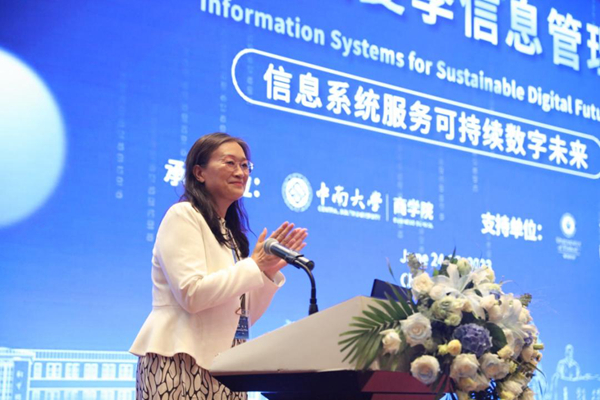
Academician Chen Xiaohong elaborated on the significant requirements of resource and environmental management in the digital economy era, drawing from key concepts such as: The concept that "Chinese-style modernization" involves a harmonious coexistence between humans and nature; the strategic decisions related to "carbon peaking and carbon neutrality," which encompass both domestic and international considerations; the critical relationship between resource and energy security and national well-being in the new circumstances; the substantial opportunities and technological support provided by the application of digital technologies for innovative resource and environmental management. These points were linked to the important principles outlined in speeches by General Secretary Xi Jinping, as well as in the reports of the 19th and 20th CPC National Congress reports. She pointed out that technology and data are the most distinctive production factors in the digital economy era, and the digital economy will reshape the modern governance system for resources and the environment. New-generation information technologies such as big data, artificial intelligence, cloud computing, the Internet of Things, blockchain, digital twins, and more provide new and effective means for innovative resource and environmental management.
Academician Chen Xiaohong emphasized that in response to the major national needs of the digital economy era, there are still significant management bottlenecks and challenges to be addressed in China's resource and environmental sector. Innovation in resource and environmental collaborative management is the core solution to resolve conflicts in our country's resource and environmental sector. It is necessary to rely on high-level platforms, focus on four scientific issues: enhancing the digital intelligence of mineral resource security, digital transformation of resource industries, digital intelligence-driven pollution control, and smart collaborative management of resources and the environment. Research in these areas should be conducted from theoretical, technical, platform, and application perspectives.
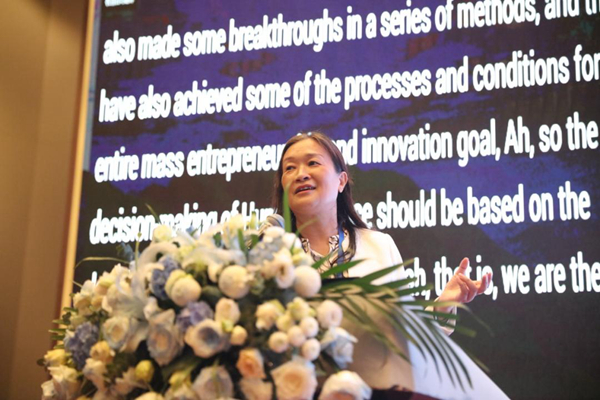
Academician Chen Xiaohong provided a comprehensive introduction to the research and innovation in resource and environmental management empowered by digital intelligence technologies. She also discussed the "1234+N" theory framework for resource and environmental collaborative management through digital intelligence, which consists of one core concept, two key tools, three theoretical methods, four governance capabilities, and numerous application scenarios. She presented the research and innovation achievements in resource and environmental management, including theoretical innovations, technological breakthroughs, the resource and environmental big data information intelligence central system, and auxiliary decision-making platforms. Additionally, she highlighted typical application demonstrations of digital intelligence technology empowering resource and environmental management at the national, regional, industrial, and corporate levels.
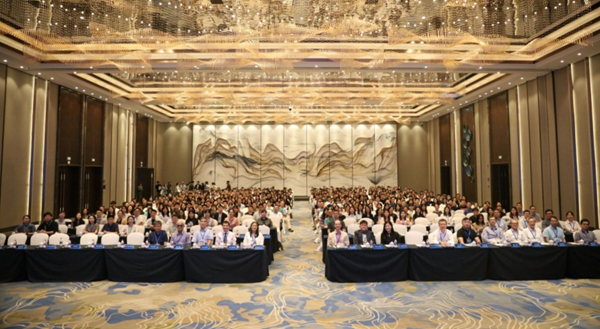
Finally, Academician Chen Xiaohong encouraged the experts and scholars present to seize the new opportunities presented by the new round of technological revolution and industrial transformation. She urged them to comprehensively implement the vision of building a beautiful China as outlined in the 20th CPC National Congress report, accelerate the green transformation of development modes, strengthen the technological support of digital technology for resource and environmental management, actively and prudently promote carbon peaking and carbon neutrality, and use digital means to accelerate the green transformation of industries. All of these efforts should contribute to shaping a new pattern of green and high-quality development in the economy and society, building new competitive advantages, and demonstrating a new commitment to sustainability.
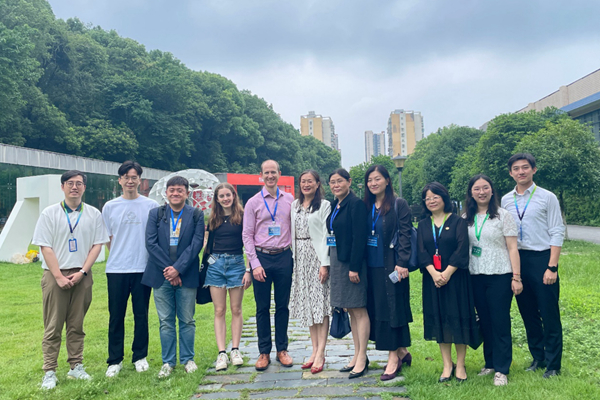
During the conference, the keynote speakers, including Professor Andrew Nicholas Burton-Jones, the Editor-in-Chief of MIS Quarterly journal from the University of Queensland, and Professor Chen Zhiwei, Deputy Editor-in-Chief of MIS Quarterly from Copenhagen Business School, as well as Professor Xiao Bo from the University of Hawaii at Manoa, visited the university. They engaged in discussions and exchanges with faculty and students. They highly praised the university for its efforts in promoting interdisciplinary integration and deep cooperation with industries, recognizing our distinctive characteristics in education.

